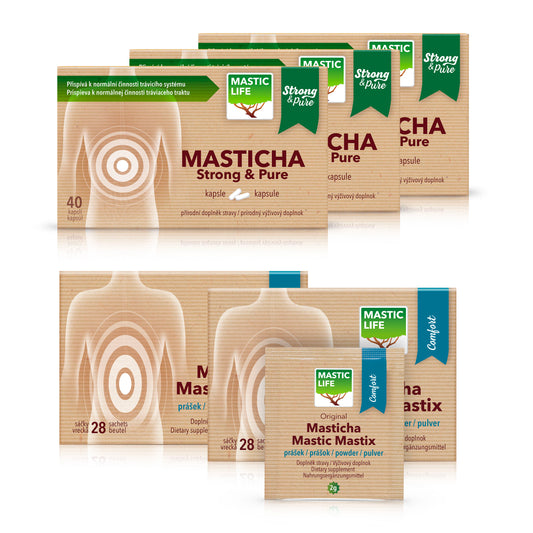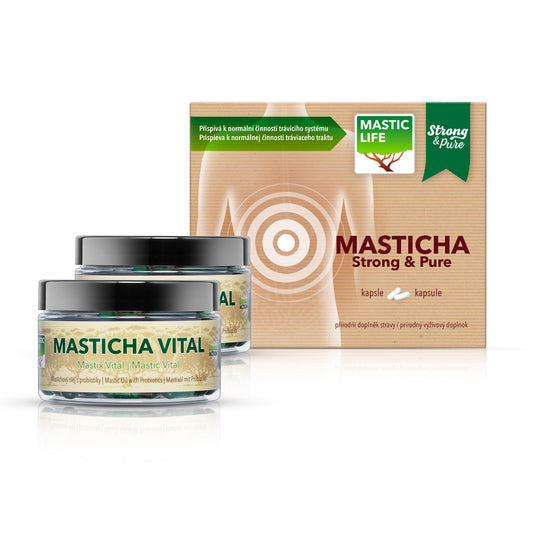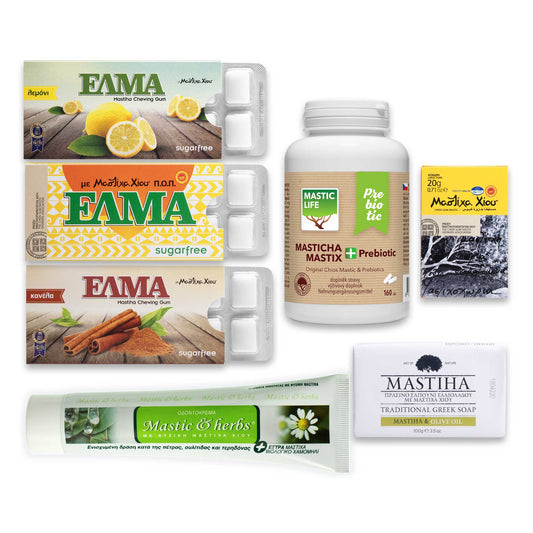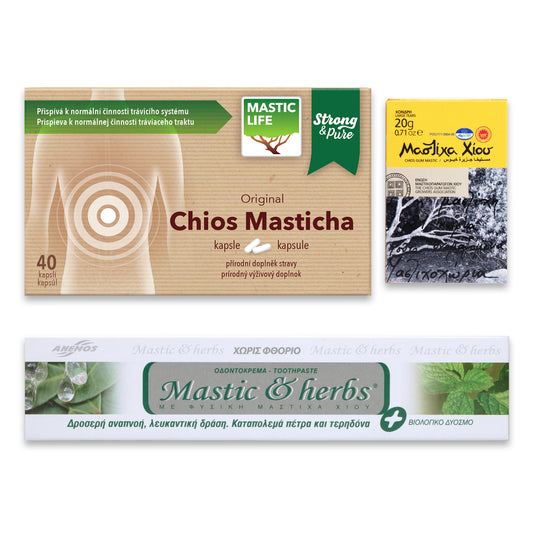Dental Care and Oral Hygiene: Best Practices and Instructions for Your Routine
Dental care is more than just brushing your teeth. Current topics on dental care and oral hygiene as a basic prerequisite for oral health. It is important to remove plaque and food residues to keep the number of bacteria as low as possible to prevent tooth decay, periodontitis and bad breath.
Brushing teeth: Correct brushing of teeth has to be learned
Brushing your teeth properly ensures clean teeth and fresh breath. If you clean your teeth properly every day, you can also effectively prevent diseases such as caries, gingivitis and periodontitis. The most important thing here is proper dental care. In addition to a toothpaste with fluoride, dental floss or interdental brushes should be used daily.
At the same time, the duration and systematic approach to brushing is important to keep the teeth and gums healthy. It is recommended to follow some rules when brushing teeth, so that the teeth become clean all around, stay healthy and the gums are not injured.
Why is brushing teeth so important?
Brushing your teeth is not only about removing food residues, but especially plaque, which forms a sticky film on your teeth after eating. The plaque is food for tooth-damaging bacteria in the mouth, these are the greatest danger for healthy teeth, because by acid formation they damage the tooth enamel.
If plaque is not removed thoroughly and regularly with a toothbrush, bacteria breeding grounds develop that cause caries and gingivitis. These diseases can be effectively prevented by regular tooth brushing.
Important!
- Damage caused by incorrect brushing can be just as dangerous for the teeth as insufficient brushing.
The rule of thumb for brushing your teeth is:
- Brush your teeth at least twice a day. It is even better if you brush your teeth three times a day - after each main meal. If you ideally brush your teeth three times a day, you are doing a great deal for your oral hygiene. You should always brush your teeth for about three minutes.
- However, you should not overdo it, otherwise the natural protective function of the tooth enamel will weaken. Brushing too long and too often, several times a day, can even harm the teeth, because the tooth surfaces and also the gums need time to regenerate.
- In the evening, after the last meal of the day, it is necessary to brush the teeth especially thoroughly. Otherwise, the bacteria in the plaque have all night to multiply and attack teeth and gums. At the same time, saliva flow and the corresponding protective functions in the oral cavity are reduced at night, so that bacterial plaque can attack the teeth even more effectively.
Do not brush your teeth immediately after eating
Everyone probably knows the saying: "After eating - do not forget to brush your teeth". But actually, you should not reach for the toothbrush immediately after eating! Why should you wait about half an hour before brushing your teeth, especially after eating acidic foods or drinks?
Eating highly acidic fruits such as oranges, kiwis, apples, salads with vinegar dressings or fruit juices produces acids in the mouth that can attack and weaken tooth enamel. If you brush your teeth immediately afterwards, a fine layer of the weakened tooth surface is rubbed off. If this becomes a habit, the tooth is always cleanly brushed, but over time the enamel attacked by the acid is brushed away.
Especially those who suffer from receding gums risk damage to the enamel and even the dentin. If, on the other hand, you wait a short time before brushing, then enough saliva has been formed in the mouth to neutralize acids.
Dental care - how to brush your teeth properly!
There is no universal basic rule for brushing teeth, but there are various recommended practices and tips for effective and gentle brushing.
As a general rule, however, avoid brushing up and down from side to side or "cross-scrubbing" ! This is ineffective and can damage teeth and gums. In addition, the bristles of the toothbrush do not reach the interdental spaces properly.
Do not press too hard on the toothbrush
When brushing your teeth, be gentle and only ever press down on the toothbrush enough to cause the ends of the bristles to bend slightly. Excessive pressure when brushing promotes receding gums and exposure of tooth necks.

Problem areas in oral hygiene
When brushing your teeth, it is important to internalize the best individual method, not to forget any tooth and to be careful with all teeth.
- Make sure that no carelessness creeps in during the daily routine: Especially when brushing your teeth, it is easy to become inattentive, your thoughts easily wander and you tend to forget risky areas in your dentition. These include, for example, the back molars or wisdom teeth that are difficult to reach. These "forgotten" areas then quickly become breeding grounds for harmful bacteria and attack sites for caries and gingivitis.
- So it is best to always brush the difficult areas first: The outer sides in the upper jaw, the inner sides in the lower jaw, the back molars, etc.
- Finally, brush the remaining tooth surfaces as well as the chewing surfaces.
- When brushing, pay attention not only to all four or five sides of the tooth, but also to the transitions between the tooth and the gum. These require a lot of attention and sensitivity because of their sensitivity and smallness.
Pay attention to interdental spaces when brushing teeth
Brushing your teeth always includes cleaning the spaces between your teeth. This is because around 30 percent of plaque accumulates in the interdental spaces, where many pathogenic germs settle. If left uncleaned, these areas are particularly susceptible to caries, gingivitis and periodontitis. But that's exactly where a toothbrush can only reach so well.
To remove plaque in the interdental spaces, it is best to use an interdental brush every day in addition to the toothbrush. In doing so, clean all the interdental spaces that you can reach with an interdental brush.
If you can't, you may need a smaller interdental brush. If the interdental spaces are very narrow or the teeth are too close together, dental floss is the best and often the only way to thoroughly remove plaque. Dental floss is available waxed and unwaxed, with and without fluorine, with and without flavor. With dental floss, you remove food residues and plaque even in places where you cannot reach with the interdental brush. Then brush your teeth as usual.
Brushing teeth with fillings, crowns or dental bridges
Teeth with fillings or dentures, such as crowns or bridges, are particularly susceptible to caries and gingivitis. This is because bacteria can easily colonize the edges of fillings or crowns, making caries an easy target.
It is not uncommon for caries damage to occur hidden from view, especially in crowned teeth. For this reason, you should always ensure good oral hygiene with crowns, bridges or fillings. Just as with natural teeth, you should brush them regularly and carefully and clean the interdental spaces.
Tongue cleaning
Tongue cleaning can remove bacterial coatings on the tongue that promote bad breath and tooth decay. It is generally recommended to clean the tongue with a tongue cleaner preferably three times a week. Use a commercially available tongue cleaner (tongue scraper and tongue brush) for this purpose. Many toothbrushes (except electric ones) already have a tongue cleaner integrated on the opposite side of the bristles.
What you may not know?
- Soft food favors tongue coatings. A varied diet, with hard foods such as plenty of raw fruits and vegetables, removes tongue coatings mechanically at the same time.
Mouth rinses
Mouth rinses can be used to support dental care, but they are by no means a substitute for brushing teeth. In the case of mouth rinses, a distinction must be made between a medical mouth rinse and a mouthwash for dental care.
Medical mouth rinses are usually pharmacy-only medications. These solutions contain a bacteria-reducing active ingredient, usually the antiseptic chlorhexidine, which can, however, cause discoloration of the teeth and taste irritations. Medicated mouth rinses are used after operations or during periodontitis treatment, they definitely have an antibacterial effect, but are not suitable for permanent use!
Dental care chewing gums
Dental care chewing gums can care for teeth by ensuring the greatest possible flow of saliva after meals and removing the coarsest plaque along with food residue. Dental care chewing gums primarily clean the chewing surfaces. They are in no way a substitute for cleaning with a toothbrush. If brushing your teeth is not possible during the day, it is always better to chew dental care gum after a meal than to do nothing at all. This makes such chewing gums a useful supplement after all.
First and foremost, dental care chewing gums should be sugar-free. Ideally, the active ingredient xylitol, which is known to prevent tooth decay, should be used. Other sweeteners, on the other hand, are not ideal.
Bottom line
Brush your teeth thoroughly in the morning and evening, use a fluoride toothpaste, clean the spaces between your teeth and your tongue. Those who are so conscientious about good oral hygiene are doing a lot to keep their teeth and gums healthy.
| Dental Care Tip | Recommendation |
|---|---|
| Brushing | At least 2× a day (ideally 3×), about 2-3 minutes |
| Toothpaste | Use fluoride toothpaste, optionally with mastic gum oil |
| Interdental care | Daily flossing or interdental brushes |
| Tongue cleaning | Use a tongue scraper/brush 3× per week |
| Mouth rinses | Supportive only, not a substitute for brushing |
| Chewing gum | Prefer sugar-free gum with xylitol |
Source: here
Chios Mastic Gum
Do you know Chios Mastic Gum? The original chewing gum? Get to know the Mastic Gum on our website.
A natural chewing gum
Mastic gum is a natural chewing gum known for thousands of years. It is extracted from the Pistacia lentiscus var. Chia tree. It is not industrially processed in any way, if you chew mastic crystals (tears), you are chewing resin that has been collected from under the trees and only cleaned. Then packed and delivered to your hands.
Mastic chewing? It's not an easy task
Chewing raw mastic is more challenging. You have to engage your jaw muscles more. Many recommend mastic to strengthen and shape the jawline. Learn more about chewing mastic here.
ELMA Gum
Are raw mastic crystals too hard for you or do you not like the "mastic" taste? (We would be surprised, people love the taste.) But if that's the case, choose ELMA chewing gum.
They have different flavours, different mastic contents and come in either sugar or sugar-free versions.
ELMA dental is described as a Tooth friendly product. They are sugar-free and contain fluoride!
Know more about ELMA Gum here.
FAQ: Dental Care and Oral Hygiene
How often should I brush my teeth?
It is recommended to brush your teeth at least twice a day, in the morning and before bedtime. Ideally, after every main meal.
Is flossing really necessary?
Yes. Flossing helps remove plaque and food particles between the teeth where a toothbrush cannot reach. It is essential for preventing cavities and gum disease.
What is the role of mastic gum in oral hygiene?
Mastic gum has natural antibacterial properties, helps reduce dental plaque, and freshens breath. Chewing mastic gum can be a beneficial addition to your oral hygiene routine.
Mastic for your gastrointestinal tract
-
 8-week treatment 🗓️
8-week treatment 🗓️Mastic 8 weeks
Regular price 336,00 PLNRegular price420,00 PLNSale price 336,00 PLNSale -
 60-day treatment 💪
60-day treatment 💪Mastic Gum Extra for 60 days
Regular price 599,00 PLNRegular price753,00 PLNSale price 599,00 PLNSale -
 Gift set 🎁
Gift set 🎁Mastic „Life with Mastic"
Regular price 250,00 PLNRegular price274,00 PLNSale price 250,00 PLNSale -
 Gift set 🌿
Gift set 🌿Mastic „Pure Mastic“
Regular price 129,00 PLNRegular price141,00 PLNSale price 129,00 PLNSale






